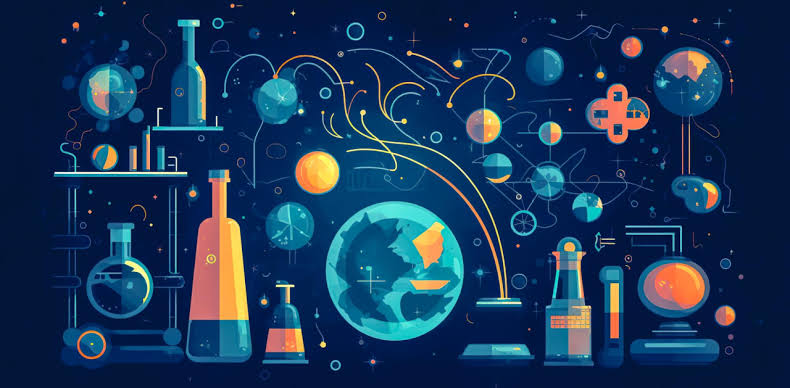29 May
Sandeep Dhand Ludhiana
The world of science is a realm of endless possibilities, driven by human curiosity and the relentless pursuit of knowledge. Over the centuries, scientific discoveries have profoundly transformed our understanding of the universe and our place within it. From the intricate workings of the smallest particles to the vast expanse of the cosmos, science continues to push the boundaries of what we know.

The Power of the Microscope
One of the most revolutionary tools in science is the microscope. Invented in the late 16th century by Dutch spectacle makers Hans and Zacharias Janssen, the microscope opened up a previously invisible world. It allowed scientists to observe microorganisms, leading to the development of microbiology. Antonie van Leeuwenhoek’s pioneering work in the 1670s, using a microscope to observe bacteria and protozoa, laid the foundation for modern microbiology and significantly advanced medical science.
Unveiling the Structure of DNA
The discovery of the structure of DNA in 1953 by James Watson and Francis Crick, with critical contributions from Rosalind Franklin and Maurice Wilkins, marked a watershed moment in biology. This discovery elucidated how genetic information is stored and transmitted, revolutionizing the field of genetics. Understanding DNA’s double-helix structure paved the way for the Human Genome Project, completed in 2003, which mapped the entire human genome. This has had profound implications for medicine, enabling the development of gene therapy and personalized medicine.
The Quantum Leap
In the early 20th century, the advent of quantum mechanics transformed physics. Pioneers like Max Planck, Albert Einstein, Niels Bohr, and Werner Heisenberg introduced concepts that challenged classical physics’ deterministic nature. Quantum mechanics revealed the probabilistic nature of particles at the atomic and subatomic levels, fundamentally altering our understanding of reality. This has led to technological advancements such as semiconductors, which are the foundation of modern electronics, and quantum computing, which promises to revolutionize information processing.
Exploring the Cosmos
Astronomy and space exploration have provided profound insights into the universe’s origins and structure. The launch of the Hubble Space Telescope in 1990 has been instrumental in advancing our knowledge of the cosmos. It has captured breathtaking images of distant galaxies, nebulae, and other celestial phenomena, significantly enhancing our understanding of the universe’s expansion and the nature of dark matter and dark energy. Recent missions, like the Mars rovers and the James Webb Space Telescope, continue to explore new frontiers, searching for signs of life and unraveling the mysteries of our solar system and beyond.
The Era of Artificial Intelligence
In recent years, artificial intelligence (AI) has emerged as a transformative force across various scientific disciplines. AI algorithms and machine learning models analyze vast datasets, leading to breakthroughs in fields ranging from climate science to healthcare. AI-driven research has accelerated drug discovery processes, improved diagnostic tools, and optimized resource management in environmental conservation efforts.
Conclusion : Science is a dynamic and ever-evolving field, characterized by a continuous cycle of discovery and innovation. Each breakthrough builds upon previous knowledge, propelling humanity forward. As we stand on the brink of new scientific frontiers, the possibilities seem boundless. Whether it’s exploring the depths of the oceans, unlocking the secrets of the human brain, or probing the far reaches of space, science and discovery will undoubtedly continue to shape our future in ways we can only begin to imagine.
